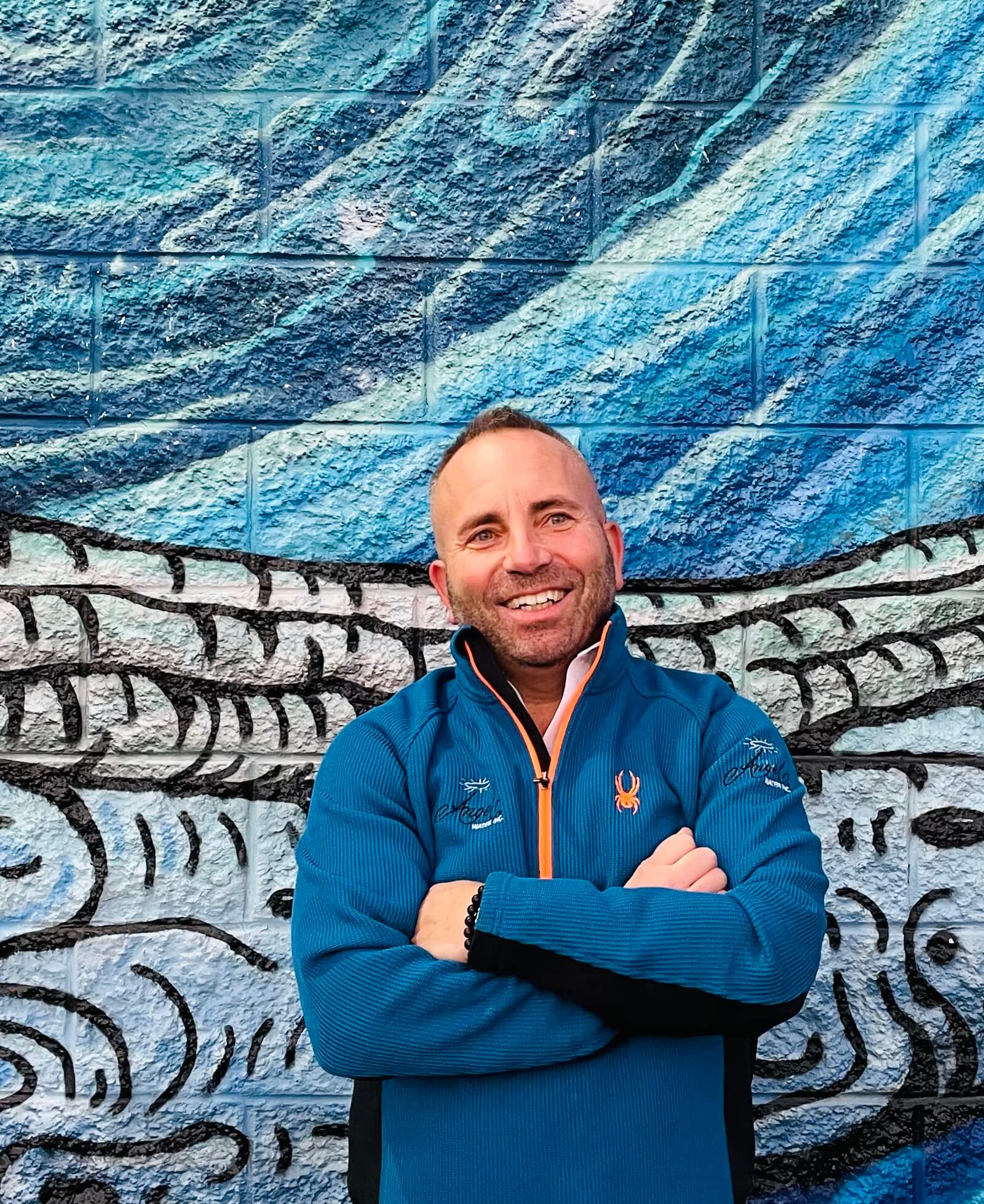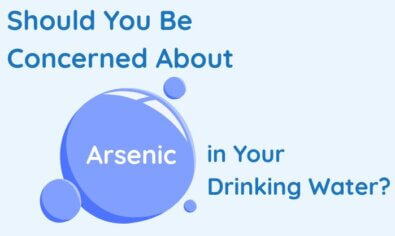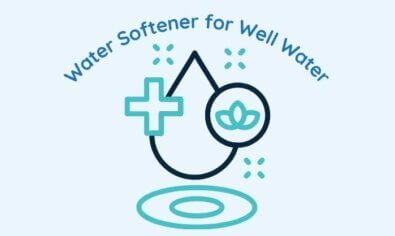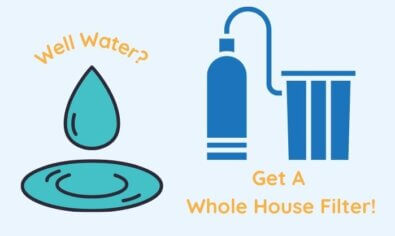Mr. Angel Water Tells Us – What Lurks In Your Family’s Drinking Water
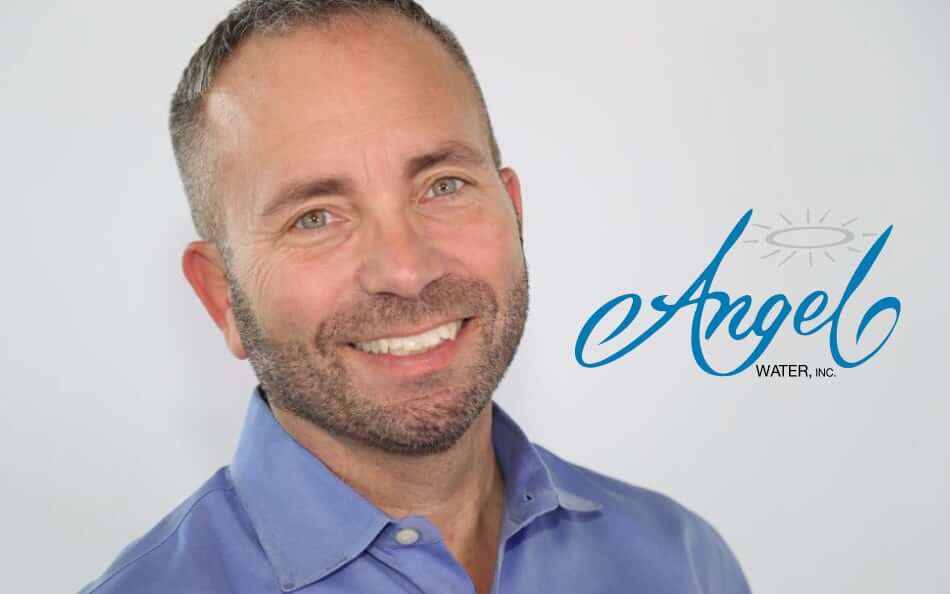
That’s Quite A Bit More Than Expected
Interviewer: So tell me a little bit about some of the things you’re seen as far as the quality of water, you said that your most of your work is primarily in the suburbs of which, many of these suburbs do tap into Chicago as their source for water, but then many of them also use common wells right? And many of the suburbs?
Andrew: That’s correct, it is a little tricky because you deal with both different types of water. Chicago water, which drove a lot of interest a few years back was chromium-6, that was huge huge news. It’s sort of died off, but it’s still prevalent. You know chromium-6 is a cancer causing agent that’s been found in the water supplies across the country and the Environmental Working Group have only recently found this out. So between that, and as you start researching or reading more from the New York Times regarding toxic water studies, you start seeing that the suburbs have their own problems – hugely the radium that’s in the water. They’re at high levels some below the E.P.A. standards, some of them are above EPA standards but they tend to fix them. But as you see these things start to become a part of this industry, you start realizing; OH MY GOD, THERE’s A LOT TO WATER… you really get to thinking about it. There’s logic behind it, the more population you have-the more pollution you get. As a result, it does make sense to filter your drinking water.
Interviewer: All right… so talk to me about some of the options that are available for people when it comes to filtering water in their homes. I mean… you know… one of the things to you know is: do I need to filter the water that I connect my sprinkler to?
Andrew: Sure, no you don’t need to filter that. You know I think when you take a look at water in general 99% percent of water consumption is actually used for industry or personal use such as for showers, less than one percent is used for drinking. So… the very first thing that we typically look at like for say someone like yourself, knowing that you live in Chicago, is you take a good look at the city and you’d see that they’ve added a lot of chlorine to the water, at the very minimum I would recommend that you look to remove chlorine out of your drinking water and as you become more educated you might say, OK… well I don’t like mercury in my water, I don’t like lead in my water, I don’t like Chromium-6 in my water; so the next step for you would be a drinking water system like a reverse osmosis system. Just a good, high quality NSF certified units that can actually purify the water at the point of use, like the kitchen sink and that’s the type of thing that I try to lean a lot of customers to at a very minimum… is to do that.
Interviewer: Let me stop you right there – because people always hear “reverse osmosis,” they’re like “oh, I want to get that reverse osmosis thing.” Could you explain how that works.
Illinois Water Utilities have been reporting some gross contaminants!
Check out the concerning contamination that has been reported by public water utilities in Illinois!
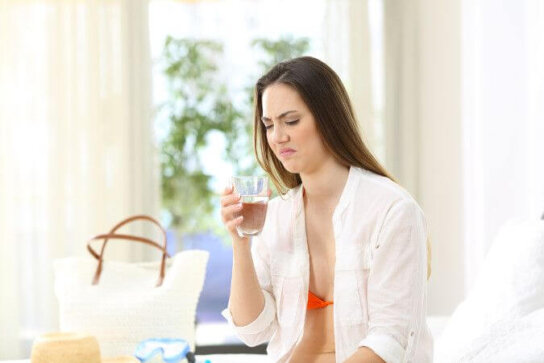
Andrew: Sure. You know it’s a little complicated, but in essence you run the water through a series of filters, one of which is called a membrane and in that membrane it has basically split that water molecule and taken almost “everything” off of it. So as it’s taken everything off of it, it discharges some water with that waste and then it purifies this to one droplet of water. It sort of drips and gets put into a holding tank. So at that point then that water is actually very very pure.
Interviewer: So in particular from a drinking standpoint, these reverse osmosis kits work, some of them are small enough that they would go… they could fit under a kitchen sink.
Andrew: Yes most of them are yes…
Interviewer: And so there’s a holding tank there where your water gets fed into the holding tank and then you’ve got a dispenser, perhaps off to the side of the kitchen sink, where you can pour a glass of water or you can fill up a teapot or even fill up. A pot for cooking pasta.
Andrew: You got it. Exactly. There’s a separate little faucet at the kitchen sink and a lot of times we’re lucky enough to run a line over to the ice maker to; even the President’s Council on cancer says the best thing we as humans can do or as Americans can do is to filter our tap water to prevent cancer and so this unit is a perfect example of that. You fill up a stainless steel or glass bottle stick in the refrigerator and or hopefully you have a fridge that has a water dispenser and that’s what you use for your drinking water. Man-oh-man, that’s got to be one of the best things people can do because it also reduces the plastic impact that we have on our environment. I mean look at the plastic bottles we’ve created and wasted! Heck, they’ve outlawed plastic bottles in the major cities of California because it’s so bad for the environment. These are some really good steps I think, people can do, that can really get themselves drinking healthier water.
Interviewer: All right, now typically a unit like a reverse osmosis system, where you could potentially hook it up to an ice maker, if the fridge allows, what are we talking about to install something like that and.. and Andrew, not only to install it, but then what am I going to do to maintain it.
Andrew: That’s a great question. So you know reverse osmosis systems, you can find them at the big box stores real cheap at around $180, but they’re not certified by NSF, as some of the better ones in the industry. You’ll find they start around a $1,000, by the time you’re done Installing, probably $1200 or somewhere in that area. And I think there usually one of the better ones for you to use. The better units you’ll buy must have the filters changed once a year; conversely, the less expensive units out there have to have their filters changed every three months. These cheaper units are sort of like a loss leaders. Let’s get it into the house cheap, but then we’ll hammer them with all the replacement filters! The more you spend upfront, the higher quality unit you get. There’s a couple of big brand names out there that are pretty decent that you can find.
For a professional assessment of YOUR home’s drinking water, call Angel Water’s team of water experts at (847) 306-5577. Or if you’d prefer a do-it-yourself guided assessment, click here to use our online “water wizard” water assessment tool.
Interested in a Water Softener System for Your Home?
You don’t have to live with a dry, itchy scalp and brittle hair anymore! It would be our pleasure to help you find the right water softener to make your showers enjoyable again.
Please give us a call at (847) 382-7800 or visit our water softener page to learn more.
